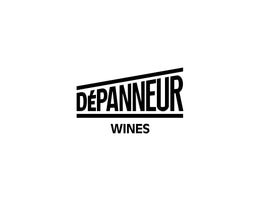Join us this Thursday Dec. 30th 5:30 - 8 PM. We have huge selection of Spanish wines from Jose Pastor Selections, now get to know our new Latin American selection from them as well.
Canopus, Pintom Pet Nat Valle de Uco 2020

A gluglu, fun and vibrant wine made from Pinot Noir. Spritzy and with a subtle mouth-texture, the Pintom Petnat has a vivid acidity and an array of flavours and aromas combining grapefruit, citric and elderflower. A great aperitivo, with a Ceviche spoon amuse bouche.
The Place: Our vineyard is located in a tranquil spot in El Cepillo, Valle de Uco, with the snow-capped Andes in full view. The area is characterized by its calcareous soils, extreme temperatures, and erratic winds. In our ten hectares of vineyards, we pay close attention to the many subtleties and nuances of the terroir with the sole purpose of giving our wines their distinct and natural character.
The Process: Our vineyard is (certified) organic and we work with biodynamic processes, respecting the original conditions of each wine and with minimal intervention. In the cellar, the wines continue their natural course; without corrections or manipulations.
Agricola Macatho, ChaCha Valle del Itata (2019)

ChaCha is Macatho’s one white wine, made from Itata Valley chasselas grown on basalt soils, blended with young-vine chardonnay grown on alluvial terraces. The grapes are hand-harvested in early March and cooled overnight, de-stemmed and spontaneously co-fermented in stainless steel with 13-16 days on skins, then raised in the same vessels for 6 months. Bottled with the bare minimum of added SO2, ChaCha is a skin-contact white wine, with savory texture, vibrant acidity, and flavors & aromatics of orchard fruit.
A series of chance encounters is what let Macarena del Río and Thomas Parayre to find each other and to start their joint project, Macatho in 2016. Born in Chile to a French mother, Maca enrolled at the prestigious University of Bordeaux to study winemaking. While a student, she stumbled across a natural winebar in Southwest France that inspired her and changed her way of thinking about wine. After completing her studies, she worked harvest with several natural winemakers across France, including the famed Yvon Métras in Beaujolais. Born in France, Thomas arrived in Chile seeking adventure. He worked odd jobs all of the country before starting his own graphic design firm. Along the way, he moved in with a new roommate by the name of Louis-Antoine Luyt, who was then working in restaurants and beginning to learn about wine; his course was forever changed. Maca and Thomas, who met during a harvest with Luyt, are some of the the most talked-about newcomers to the wine scene in Chile. Based in Chillán, they currently work and farm old-vine parcels of land organically in Maule, BíoBío and Itata. In the cellar, all work is done manually and by gravity.
Huaso De Sauzal, Carinena Vino Tinto Chileno Valle del Maule 2015

Cariñena is made from Carignan grafted onto pie franco País rootstock on granitic soils in the town of Sauzal. The grapes are hand-harvested in early April, destemmed and spontaneously fermented in open-top fermenters without temperature control, then pressed and raised in used barrels for 1 year, and an additional year in bottle (without added SO2) before release. Cariñena is a rustic red wine, brimming with savory, black fruit flavors and vibrant acidity.
The story of Renán Cancino and his path to natural winemaking is routed in Chilean history and culture. His ancestors arrived in Chile from the Iberian Peninsula around the same time that País cuttings traveled from Spain to Chile and became a mainstay in winemaking across the region. Renán makes wine in the way he knows his ancestors made wine – without any additives. After receiving a degree in agronomy, Renán learned to make wine the conventional way; technically correct wines with very little sense of character. It was only after a major earthquake hit Central Chile in 2010 that he had to pull together with almost nothing for a cellar to make the 2010 vintage. With his hometown of Sauzal reduced to rubble, he had much bigger problems to deal with, leaving him no time to correct the wine, or even hardly pay any attention to it. In the end, he fell in love with the wine and changed his path to make wine without any interventions. A man steeped in history, he does not call his wines “natural” instead, “traditional” as an homage to the way his father and grandfather before him made wine. To honor these traditions, Renán ferments his wines in rauli, or Chilean wood barrels and uses a zaranda, or destemmer, made of local bamboo.
Carignan grafted onto very old País vines grown on granite soils in the town of Sauzal. Open-top fermentation without temperature control. Raised for 12 months in used barrels, and an additional year in bottle before release. No added SO2.
